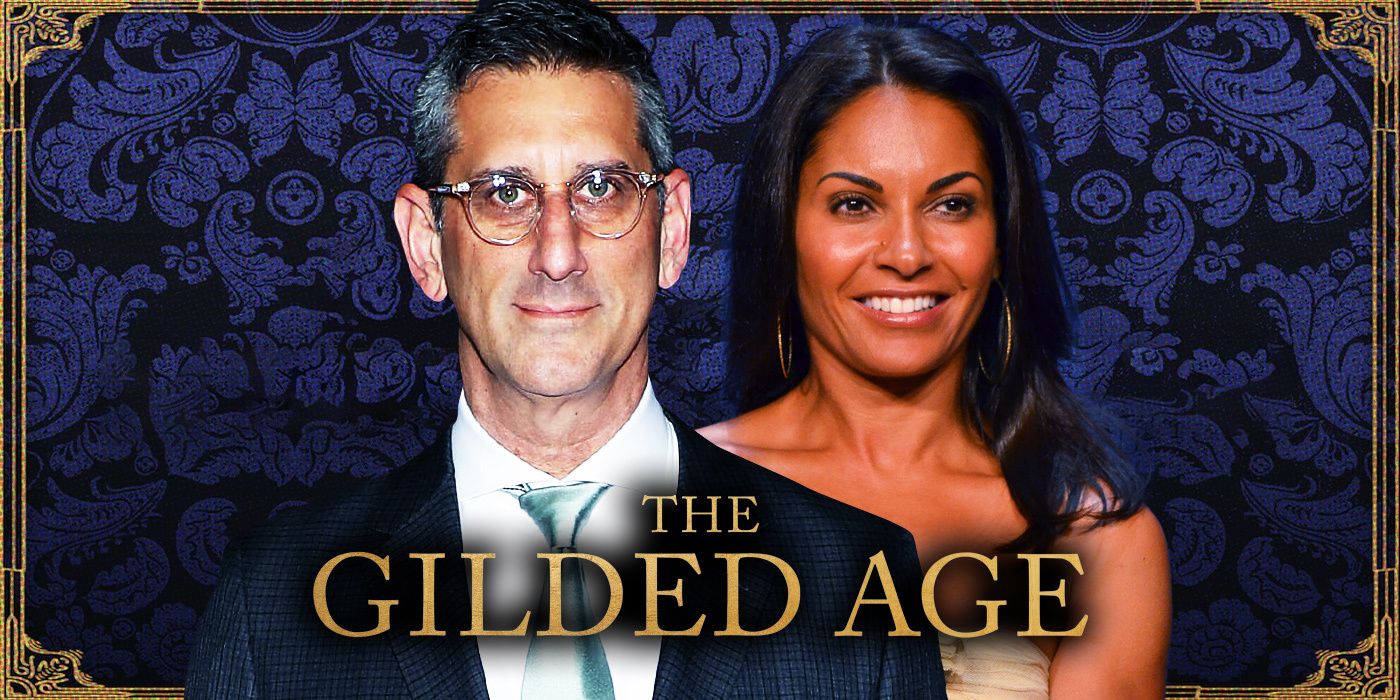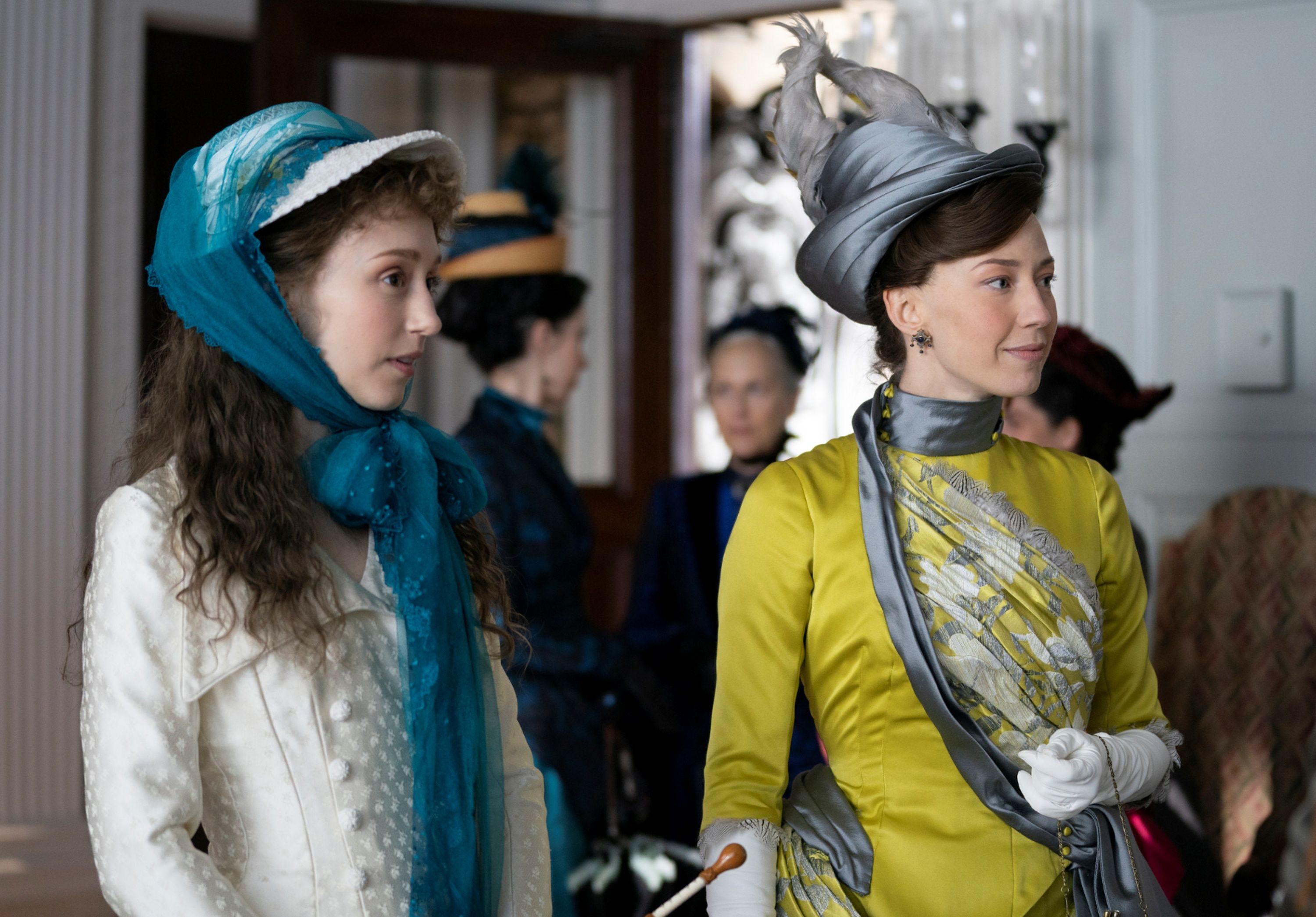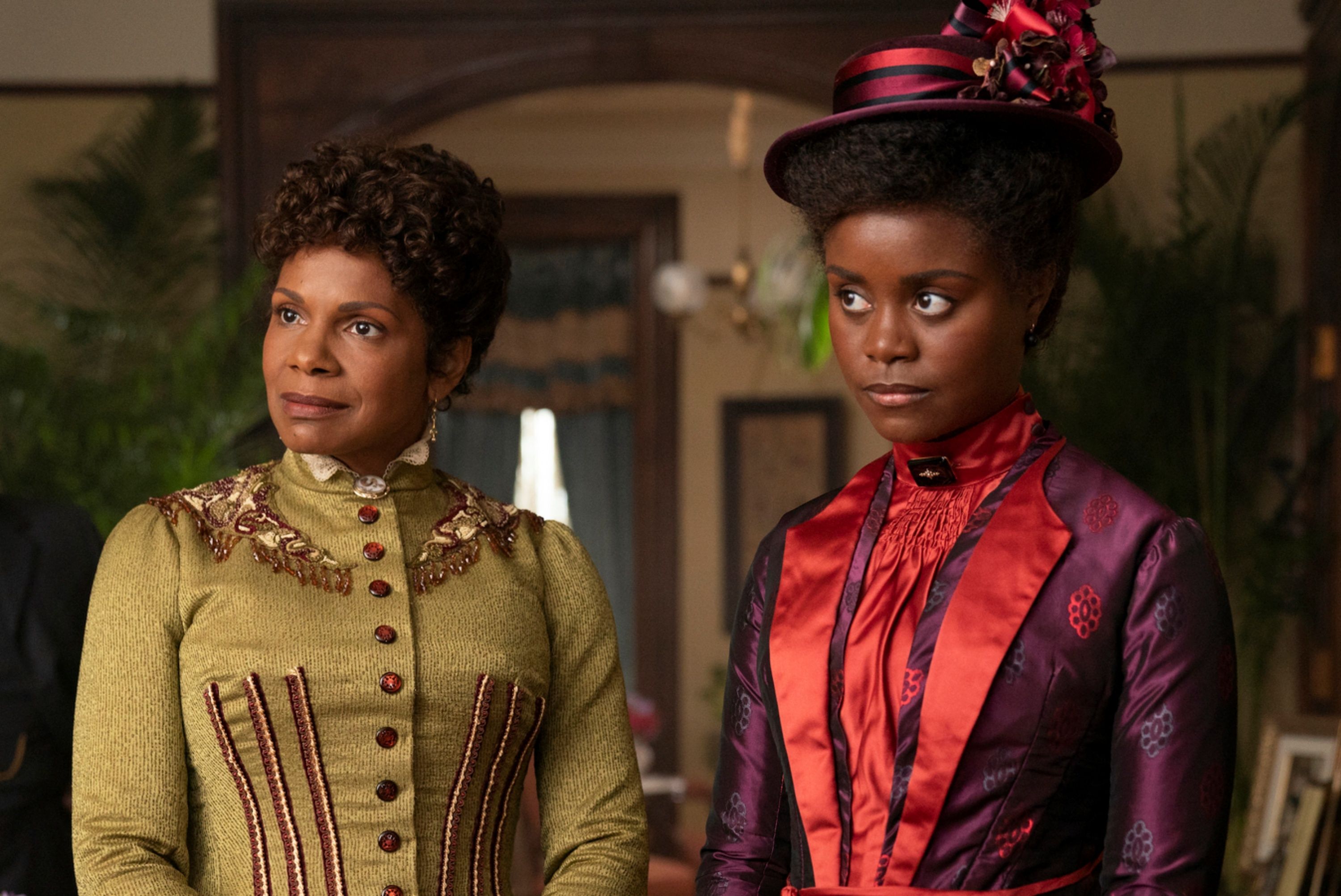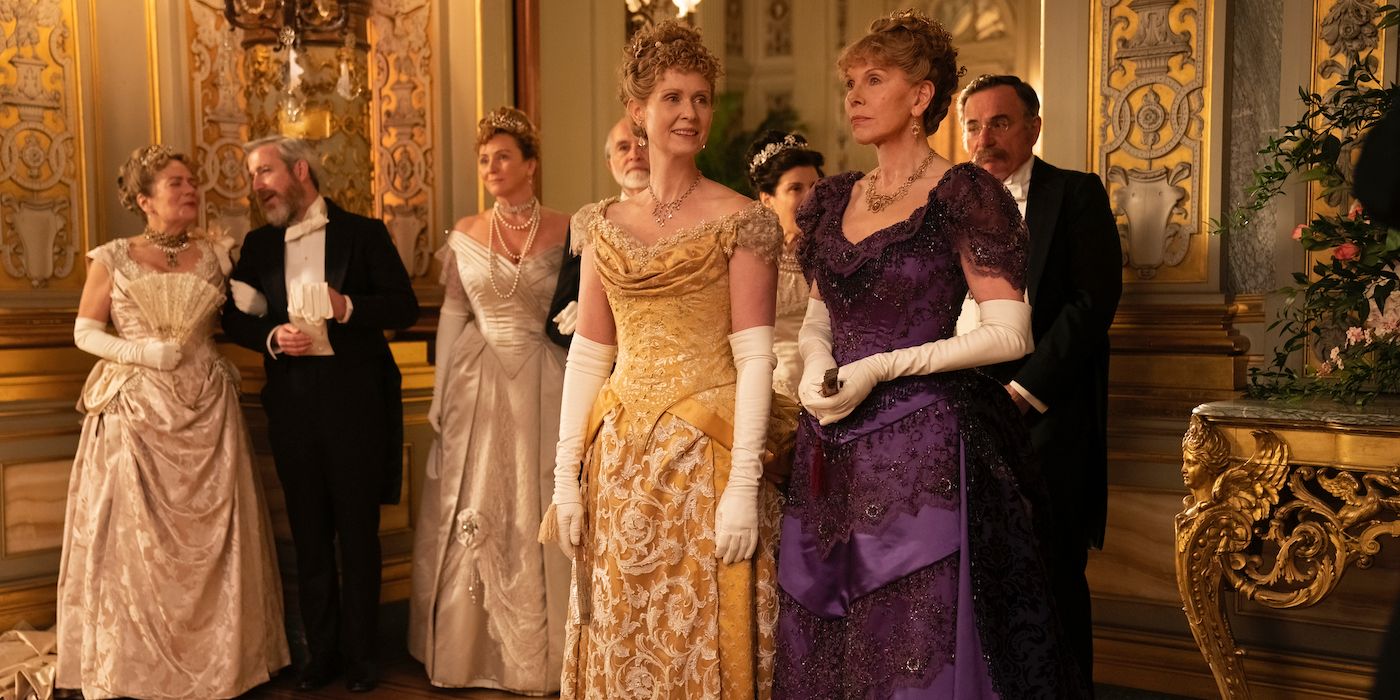Co-written by show creator Julian Fellowes (Downton Abbey) and Sonja Warfield, the HBO drama series The Gilded Age is set in the lavishly extravagant world of late 19th century New York and finds the orphaned Marian Brook (Louisa Jacobson) moving into the home of her aunts, Agnes van Rhijn (Christine Baranski) and Ada Brook (Cynthia Nixon). Once there, the young woman quickly learns the importance of whether you come from old money or new and that there are certain expectations for her that she might not be fully willing to follow, as she finds her place in society.
During this interview, Michael Engler and Salli Richardson-Whitfield, who are both directors and executive producers on the series, talked about what excited them about telling this story, setting up the look and feel of the season in the first episode, combining their vision and plan for their individual episodes to cohesively form the season, learning from each other, and working with this cast and creative team to create such an epic tale.
Collider: This show is so incredibly sweeping and epic. Michael, you had previously worked on Downton Abbey, so what most interested you in this project? What was it about The Gilded Age that excited you, from a creative standpoint?
MICHAEL ENGLER: Well, first of all, I love working with Julian [Fellowes]. My background is in the theater and what is always most important to me is the writing and the acting. The thing about his material is that it’s all about the actors, the characters and the relationships. I knew there would be that, and I was excited about it. What most excited me here was doing what he does for an American audience, with an American subject, in an American setting, allowing American actors and designers and filmmakers to tackle the same challenges of a great period drama about our own American stories, and watching great American actors who we’ve seen do all these contemporary things. Cynthia Nixon, Christine Baranski, Audra McDonald, and all these people have done so much more complex and so much more period work on stage, but not so much on film or in television here. I was really excited about the opportunity for a group of people like that to get together and say, “Let’s do our own one. We don’t have to rely on the Brits to deliver it to us.”
Salli, because you didn’t have that history with Julian, how did you come to this project and what excited you about tackling this world and all of these characters?
RICHARDSON-WHITFIELD: I actually had watched every single episode (of Downton Abbey) and it’s definitely a world that I enjoy watching and always have. But as a director, it was a great challenge. It’s a new world for me. I had to do a lot of research. I had to read a lot of books. I had to really drench myself in that world. It’s also a challenge because it seems like a show that is a simple to direct, and that’s not at all true. I’ve done a lot of fantasy shows and things that you would think would be hard, and with this world, what’s exciting for me is how to make this thing that seems so simple, interesting and funny. And then, there’s the challenge of working with such amazing actors, and there’s working with Julian. How do you say no? Then, it’s HBO. Then, it’s Michael Engler. There were just so many reasons to come and do this, and rise to the challenge.
ENGLER: And how she came to it was that HBO was a big fan of hers and introduced us to her and her work. We could tell from her work that, even though she hadn’t done this exact kind of thing, it was all the values we were looking for in a collaborator. She was really interested in the acting and the script work, and there was beautiful shooting, but a sense that within the style, it was very modern and cinematic. We invited her to join, and she did. We’ve all felt like a family ever since.
RICHARDSON-WHITFIELD: It’s been really great. I keep telling these guys that I owe them a lot for letting me be a part of this. It’s just been a wonderful experience.
Salli, I’m familiar with your career as an actor. How have you found that transition, going from acting to directing, and getting the jobs that you want to get? It’s sometimes hard in this industry to get people to let you transition into something else. Do you feel like you are at a place now where you’re getting the jobs as a director that you want?
RICHARDSON-WHITFIELD: Absolutely. What’s funny is that I work with a lot of people now who don’t really know I was an actor. They only see me as a director. I think that a lot of the reason I’ve been able to move so quickly and into shows like this for HBO is that I completely immersed myself in it. I stopped acting. By doing that, people went, ”Okay, this woman is serious about this transition of what she wants to do.” There are a lot of actors who dabble. For me, I said, “This is what I wanna do. I have to make a complete commitment to it and believe in myself that this is where I’m supposed to go, and have a plan.” Really, the plan was to land on a platform like HBO and on high-quality shows like this, and the plan worked.
Where did it all start, with creating the look and feel of this show? Michael, coming in and directing the first episode, what did you specifically want to establish that would set up the season and that felt like it could continue throughout?
ENGLER: One of the main things that I felt was most important was, Downton Abbey was an upstairs-downstairs, and I’ve always described this as the right side of the street and the wrong side of the street. There’s the old New York established money and society, and the nouveau riche with the big mansions and all of that. We realized the only way to do it was to create a backlot because we could never control a real street, for as many times and as many ways as we needed, with all the street covering, the horses and carriages, the gas lamps, and all that kind of stuff. So, we decided that was the centerpiece. We wanted it to feel, in a way, almost like Rear Window, where from either house, you could look outside across the street and see the other house. It was always clear that that’s what our story is based on – these two houses that represent the old world and the new world, and the conflict there.
And then, we decided it was really important to feel the lushness, the richness, the detail, the scope of the period of The Gilded Age, with all of that great beauty and pageantry and everything that audiences come to this kind of thing for, but to also have a difference from Downton Abbey. It has an urban and gritty, at times, feel about it. This is the growth of a big, powerful city, and not just a bunch of pretty houses and a bunch of lovely dresses and beautiful rooms. It goes out into the world with much more energy and gusto.
Salli, what was it like for you to come in after that was established, but also still bring yourself to the project? How do you weigh working as a collaborative team versus knowing when there’s something worth fighting for, if people don’t necessarily see what vision you have for a project?
RICHARDSON-WHITFIELD: We were very lucky. Michael and I are obviously two different people and we are going to direct things differently, but they’re still similar enough that it worked. Michael laid out what his ideas were and his plans, and how he wanted to shoot both homes, and I said, “Okay, don’t worry. I won’t go rogue.” At the end of the day, we really were two separate entities. He was doing his episodes, I was doing mine, and somehow I don’t think they’re that much different. It worked out well for us. I really respected Michael’s vision and I wanted to give him that, and it’s almost impossible for me not to infuse what my eye for something is. That just happens naturally and it somehow it worked out perfectly.
ENGLER: I would say this was a unique experience too because normally, if you’re doing a pilot, you do all of the prep, and then you shoot it. And then, the next person who comes in watches the pilot and says, “Oh, that’s interesting. How did you do that? How do we get it like that?” We went through all the prep together, and she was starting to prep some later things, and then we shut down for COVID. And then, by the time we came back, all the episodes were written, and we realized it was gonna just be the two of us. The best way and the most efficient way for us to do it was to work alternating. I would do a week, and she would do a week. Then, I would do a couple of days, or sometimes we’d split days. I shot probably the first two weeks, and Salli was around working and prepping, but then she started shooting, and she was shooting things I hadn’t shot yet. No matter how much you prep, there’s a certain amount you just can’t learn or know about until you get there. We were both making discoveries along the way. She did many things that I said, “Oh my God, I love that. Let’s do that. That seems like the show.” And I would do things that we all planned, but I’d go, “Hmm. I know we all planned that, but it’s somehow not as rich as I thought it would be. Let’s not stay stuck with it.” We would discover things separately or together, along the way. In a weird way, it has both of our DNA in it. I was definitely on earlier and there for a lot more of the early decisions, in terms of the sets and the early parts of casting and all of that. But once we got into the actual filmmaking of it, it didn’t feel like I made a thing and then handed it off. It felt like I got it started, and then Salli added hers to it. And then, she handed it back to me, and I took some of what she did and added more to it. I think it’s one of the reasons it feels so organic, as a whole.
RICHARDSON-WHITFIELD: It was just a really great process for me. I’ve never experienced that. I do feel like I’m truly part of the creation of this show, rather than somebody they just brought in and said, “Do that.” It’s a very proud moment for me, for this to premiere.
The Gilded Age airs on Monday nights on HBO and is available to stream at HBO Max.




